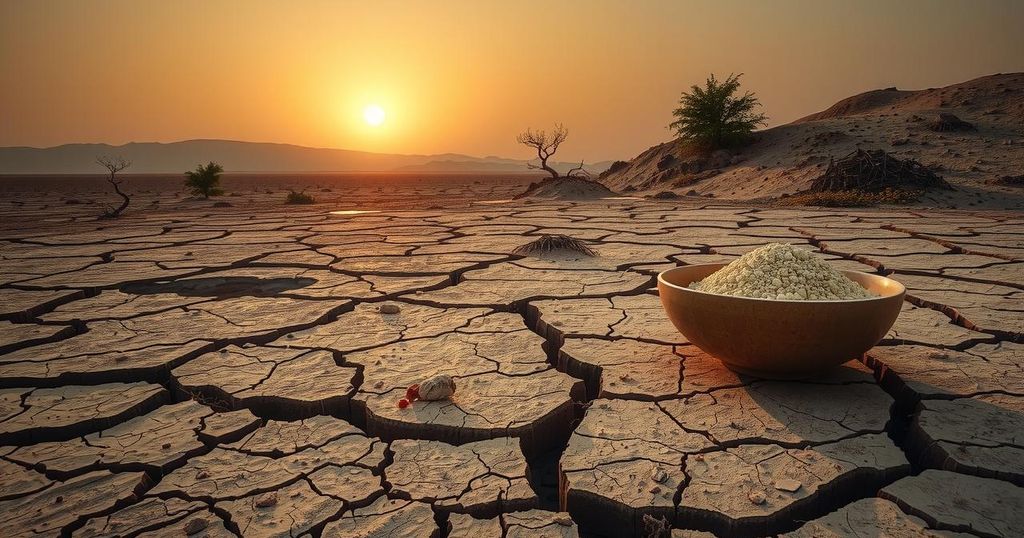Zimbabwe is in the grip of a food crisis due to an El Niño-driven drought, impacting 7.6 million people. Its $21 billion debt limits access to international aid, while economic mismanagement and sanctions deepen the crisis. Only partial debt repayments have been made, and humanitarian needs are growing amid continued default.
Zimbabwe is experiencing a severe food crisis, exacerbated by a prolonged El Niño-driven drought that has left 7.6 million people hungry. The country’s $21 billion debt prevents access to vital international aid, leaving many struggling to afford food. Historical economic mismanagement and sanctions have compounded these challenges, leading to widespread hunger and a humanitarian crisis.
This drought has decimated Zimbabwe’s corn production, with yields dropping by more than two-thirds. As a result, the World Food Programme warns that access to food will be critical for millions of Zimbabweans within the coming months. Many local families, unable to harvest crops adequate for their needs, are increasingly reliant on external aid while facing dwindling resources.
Zimbabwe’s debt crisis has persisted for 25 years, with creditors like the World Bank and the IMF unable to offer emergency funds due to the country’s ongoing default. Recent comments by Zimbabwean Finance Minister Mthuli Ncube highlight a misplaced hope in securing aid, despite the lack of financial capability to meet international obligations or to regain creditor trust.
The root of Zimbabwe’s economic troubles dates back to land reform policies initiated in the early 2000s. These policies led to the collapse of agricultural production and, consequently, significant economic decline, compounded by international sanctions. Over the years, important investors withdrew, resulting in food shortages and hyperinflation, further restricting the government’s options to address debts.
Negotiations with creditors have yielded minimal results, with Zimbabwe having only repaid a fraction of its debts. The country has sought assistance from advisors for debt management but has struggled to find a viable path forward. Other nations have successfully navigated similar challenges, but Zimbabwe’s default status since 2000 remains a significant barrier.
Zimbabwe’s protracted debt crisis, compounded by severe drought and ineffective economic policies, has left millions of its citizens facing food shortages. The country’s long-standing defaults hinder access to necessary international support, while historical mismanagement continues to cast a shadow on its recovery. Without substantial aid and a turnaround in fiscal policy, the situation remains dire, calling for urgent global attention and action.
Original Source: www.biznews.com






